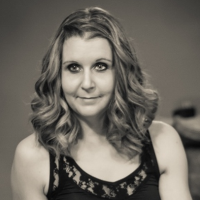I have been re-evaluating in my life what it means to not settle.
A phrase I’ve heard often throughout my life is, “Don’t settle for less than you deserve.” Here’s the problem: the attitude that we “deserve” something is based on the past, like we are being owed something. I have tested this concept out and what I have come to understand is that if we are always in a place of feeling like we’re owed something, we end up empty and miserable inside.
Bottom line is we don’t deserve anything. The truth: we are worthy of everything simply because we are here.
Worthiness is not something that is earned; we are born with it.
So why is it that we don’t feel worthy enough to get what we want?
Somewhere along the way we learn to feel that we are not worthy, that we are not good enough because we were told that, in order to get something, we have to “deserve” it.
Think about it for a second. Did you ever hear your parents say to you, “Do you think you deserve that?” or “You don’t deserve that”?
We have all been hog washed into thinking that our worthiness is dependent on something we do or don’t do and, here’s the kicker: what we “deserve” usually has something to do with someone else’s set of rules!
We have learned to settle our entire lives! But settling in this case isn’t how our parents used it. We didn’t fall short of something someone decreed we needed to earn; instead, we failed to understand and comes to terms with our innate worth. The result is pervasive.
So if you have made the decision like I have to not settle for someone else’s life and to truly search for what it means to you to live your life, then take a moment and listen.
It’s tough. It’s hard to not settle—especially if you’ve been settling your entire life!
Is it worth it? I believe so. I am still learning not to settle.
I stayed in a 10-year relationship because I was settling for someone else’s idea of what a marriage looked like. Somewhere deep inside of me was a strong desire to get out. To leave that relationship took courage. It took vulnerability. It took doing the exact opposite of what I would normally do, which was settling—because deep down I didn’t believe I was worth earth-shattering love.
On my quest to stop settling for other people’s lives, here’s what I’ve learned:
- Saying no can be the toughest decision that you’ve ever made, because when you settle you are used to saying yes.
- There will be times when every ounce of you wants to take those no’s back.
- When you start saying no, the universe won’t let you take those no’s back (trust me, I’ve tried).
- Courage often looks like doing the opposite of what you would do.
- Vulnerability is the action that proceeds courage.
- Vulnerability is hard but it is inspired by your heart so it can do no harm to you, only to your false self that believes you are not worthy. That can hurt, it can feel very painful like a part of you is dying. A part of you is dying.
- Give yourself permission to grieve. You must allow this process to happen.
- Not settling requires re-assessing what it is you want and need. Do you truly know what that is? Get clear about it!
- Saying no is the beginning of saying yes to yourself. This means self-care must be your #1 priority.
- The #1 reason we don’t make ourselves our first priority is because we have been taught to need validation from everyone else because that is where we learned deserving = worthiness.
- Deserving has nothing to do with worthiness (even though the dictionary says so!).
- There is more than enough worthiness for everyone in the world.
- Question all your beliefs around what makes you feel worthy, and you will learn a lot about who you’re not.
- Worthy = enough and you are more than enough.
- Knowing and believing you are more than enough are not the same.
- Knowing you are is knowing who you are at your core.
- Who you are at your core is love.
With all my love,
Amy Dawns xoxoxox
~
Author: Amy Dawns
Editor: Caroline Beaton







Read 2 comments and reply